OUR PATH TO
A POSITIVE WORLD

Text:Masashi Matsuie Photo:Kinya Ota

How to Shape the Post-Coronavirus World for Our Children
Ten years ago, the social theorist and economist Jacques Attali predicted and warned of a global pandemic in his book.
In a recent piece, Attali highlighted “the Economy of Life” and altruism as the prescriptions for the social and economic crises humanity is facing.
What are the essential factors for a sustainable future? How will clothing change?
Connecting Paris under curfew and Tokyo, the two thought leaders held a two-hour discussion on what is needed in a post-corona world.
“The Economy of Life” and a “Positive Society”
AttaliThis is the second time I have met you, Mr. Yanai. I am glad to have
this opportunity to talk about important issues again.
YanaiSo am I, Dr. Attali. So, Dr. Attali, I believe one of the biggest problems
the world is facing right now is environmental destruction. Humanity is on
the brink of survival, and we must ask ourselves “how much time is there
left for us?” This crisis has accelerated even further considering the
COVID-19 pandemic (hereinafter “the pandemic”).
AttaliEnvironmental issues are important, as you point out. On that front,
it goes without saying that the need to pursue sustainability is crucial, but I
do not think that is enough. We must not overlook social issues and issues
of democracy. Aren’t our current politics demoralizing people? Are workers
treated properly? Are we not making grave mistakes in the way we treat
minorities? A sustainable society requires not only the ecological but the
economic and political aspects working properly. On top of that, society
needs to act with the interests of the next generations in mind. I call such a
society a “Positive Society.”
Yanai In “L'économie de la vie (The Economy of Life)”, the book you just
published, you wrote that “the Economy of Life” will be important in the
post-corona world. You have pointed out that areas such as wellness,
education, hygiene, food, agriculture, and clean energy will play a vital role
for the next generation.
AttaliExactly. A society that values “the Economy of Life” is a “Positive
Society” that values the next generation. And in the area of clothing,
clothes will be included as a part of “the Economy of Life” by not only being
made of sustainable materials, but also being long-lasting and contributing
to wellness and hygiene. Clothes that are discarded quickly will not benefit
the next generation. There will be more of a demand for clothing with
respect for nature and humanity in the future.
YanaiI feel that the pandemic is certainly changing our lifestyles, as well
as the type of clothing consumers seek. Clothing that feels more
comfortable, healthy, and that can allow us to express ourselves by
wearing it, is becoming crucial. Needless to say, materials and
manufacturing processes must be sustainable. At the same time, it will be
more important for clothing to play a part in making the environment a
better place to pass on to the next generation.
AttaliThat is exactly an action which is in the interests of our next
generations. We are the grandparents of all humanity, and we must act like
grandparents of humanity yet to be born. In any work, we need to ask
ourselves the question: “Is what we are doing part of ‘the Economy of Life’?”
YanaiWith a crisis like the pandemic, we should think positively and
change our industries, including clothing, in solidarity with the world.
However, the world is even more divided socially and politically right now.
AttaliClimate change, the pandemic, and conflicts around the world are all
major risks hovering above us like black clouds. However, just like in
football games, we must analyze the strengths of the opposition and
understand the risks when we play. If there is a country politically opposing
us, we should start by understanding its culture and respect it. That may
provide a way to rebuild a relationship without things quickly becoming
hostile. It is paramount to understand the opponent.

The interview took place on October 14 and 20, 2020, virtually connecting
Dr. Attali’s office and Fast Retailing’s Ariake Office.
Altruism drives problem solving
YanaiAn inward-looking mindset is becoming a global trend, and some
only seem to care about their own country or the environment close to
them. This is causing problems in many regions in the world. If a country
only pursues its own interests, it may lead to conflicts or frictions. Also,
there seems to be less compassion for others. Some view the differences
in race and ethnicity as a barrier, and do not try to see or think about the
differences in culture.
Without a relative perspective, we would end up having a narrow-minded
interpretation of the world that only respects our own culture. No positive
power will come from such an insular way of seeing. The pandemic hit us
when this situation was getting worse. This is an emergency that requires
global solidarity, yet we cannot seem to find the momentum for it. Another
thing that worries me is that we are losing our willingness to look at things
in an historical perspective. The present is made up of an accumulation of
what happened in the past. If we do not know or care about the past, we
cannot understand the present in a true sense.
Attali It was not as though no one could have ever foreseen conflicts
between human beings like WWII. Many people predicted the war, but
failed to stop it. The United Nations, the organization whose core mission
is to prevent such conflicts, was not created during WWII, but only after it.
Humanity can only learn after experiencing a crisis and ending it in a
devastating way. Such a view, however, is too pessimistic. It is the role of
rationality and intelligence to create the power to stop devastation before
it occurs.
I believe that there are many ways to avoid conflicts and to start acting in
order to make the world a better place. This is the fundamental idea and
attitude behind the “Positive Society.”
The same can be said for frictions caused by cultural differences or
environmental issues, which can be described as conflicts between
humanity and the environment. Altruism, a fundamental requirement of the
“Positive Society,” is the starting point and drives us to action for solving
these issues.
YanaiTurning the idea into actions—this becomes a big barrier in Japan.
Historically, Japanese tend to think that it is not for individuals but for the
government or the administration to choose the path and act for the future.
There is an ingrained mentality among Japanese that “higher-ups” should
decide and solve difficult problems. I believe this is not good enough.
Individuals or companies must start acting on their own, otherwise, things
that could be changed will not change. Things may become too late to
address if we just wait for the government or the state to make a decision.
We live in a highly globalized society. I believe that decisions and actions
that transcend national borders are more likely to spread quickly and
reliably if started by individuals or companies.
Attali Companies with the power and position to promote their own values
can become leaders in the “Positive Society” and move society forward.
This trend may only accelerate in the future, and I call such companies
“Positive Companies.” Altruism must be placed at the core of the corporate
philosophy, and corporates must fulfill these responsibilities with their
activities. In my opinion, Fast Retailing is in a position to become one of
these models. We, as consumers, should also buy products from “Positive
Companies” that apply altruism from now on. Shareholders will check to
see if they are “Positive Companies.” Investors will choose companies that
contribute to the “Positive Society.” Banks financing companies will
preferentially choose altruistic companies. Such trends will gradually
permeate society and exert their influence on those around it.
-
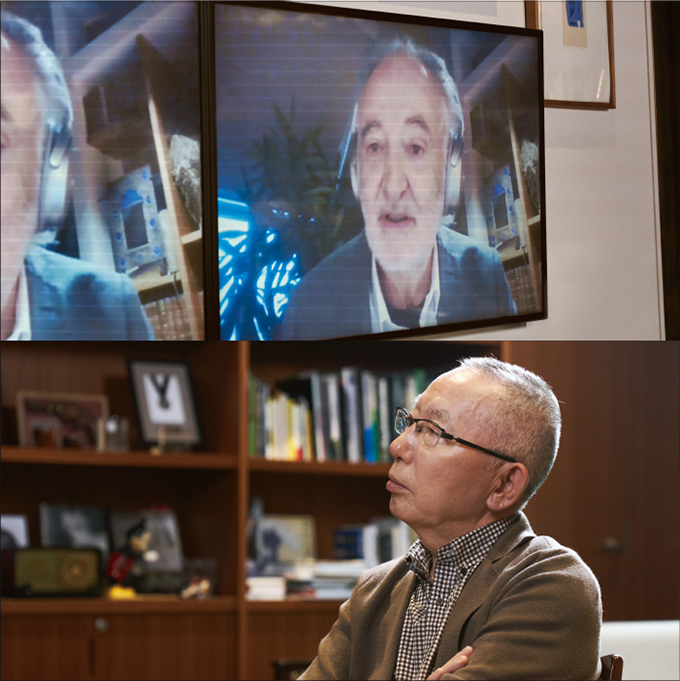
-

Combating COVID-19
-
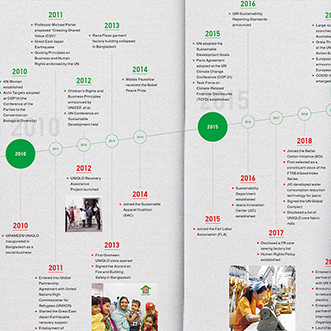
20 Years of Sustainability Progress
-

Gen Z : Changing the World
-
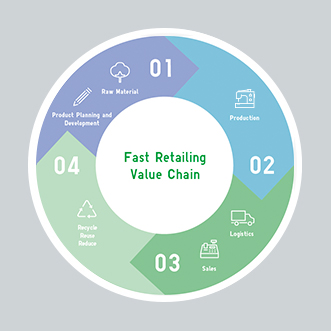
Caring for the Environment
-

Product Innovations
-
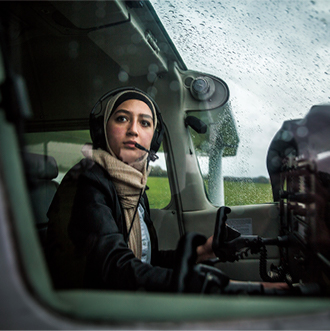
Helping Refugees Flourish
-
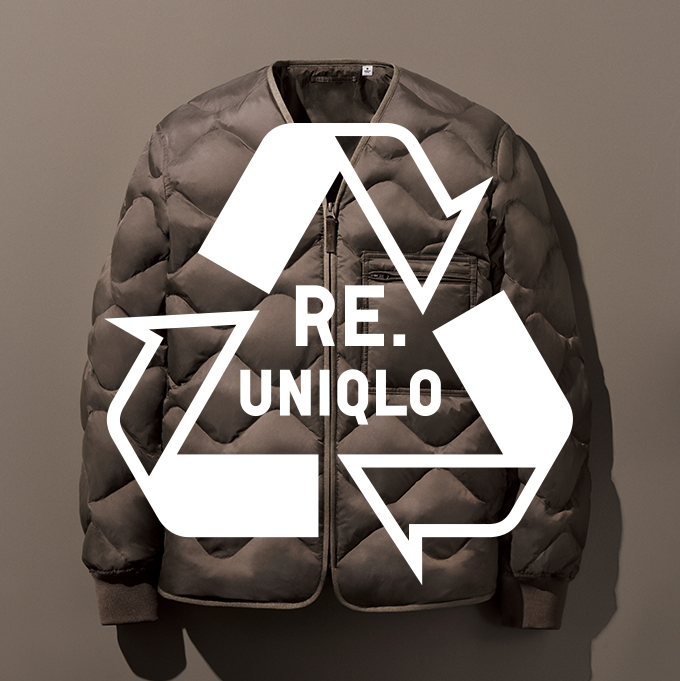
RE.UNIQLO:Rebirth of Clothes
-
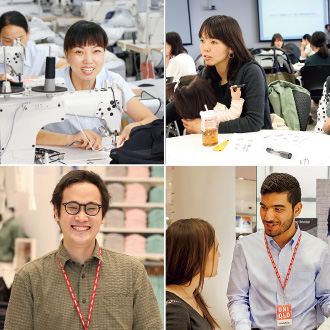
Putting People First
-
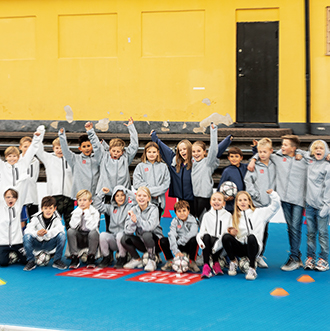
Sport Meets Young Dreams
-
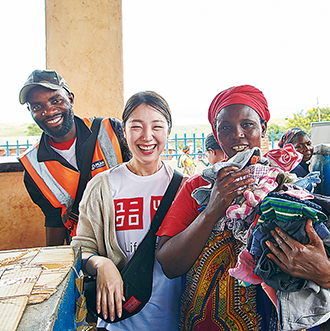
Giving Back to the World
-
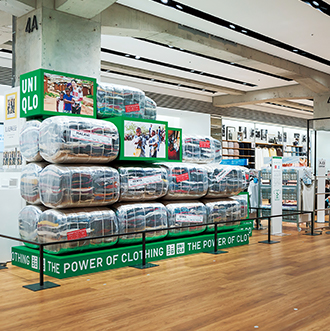
Unlocking the Power
of Clothing -

Corporate Governance
-

FAST RETAILING WAY


